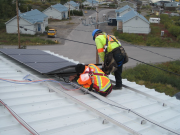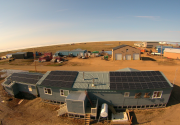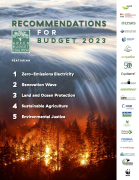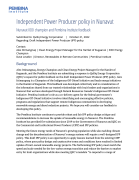Dave Lovekin's Research & Analysis

Remote Communities
April 26, 2023
Article
Budget 2023 and remote communities: more support needed
More support will help accelerate the clean energy transition in rural communities.
Remote Communities
April 25, 2023
Media Release
Pembina applauds increased CEDR funding commitment
Increased funding for Indigenous-led clean energy projects a positive step in the right direction

Remote Communities
December 12, 2022
Article
More needed to meet GHG targets and decarbonize the NWT
Indigenous-driven projects, electric vehicles and heating need to be prioritized in the Energy Action Plan




